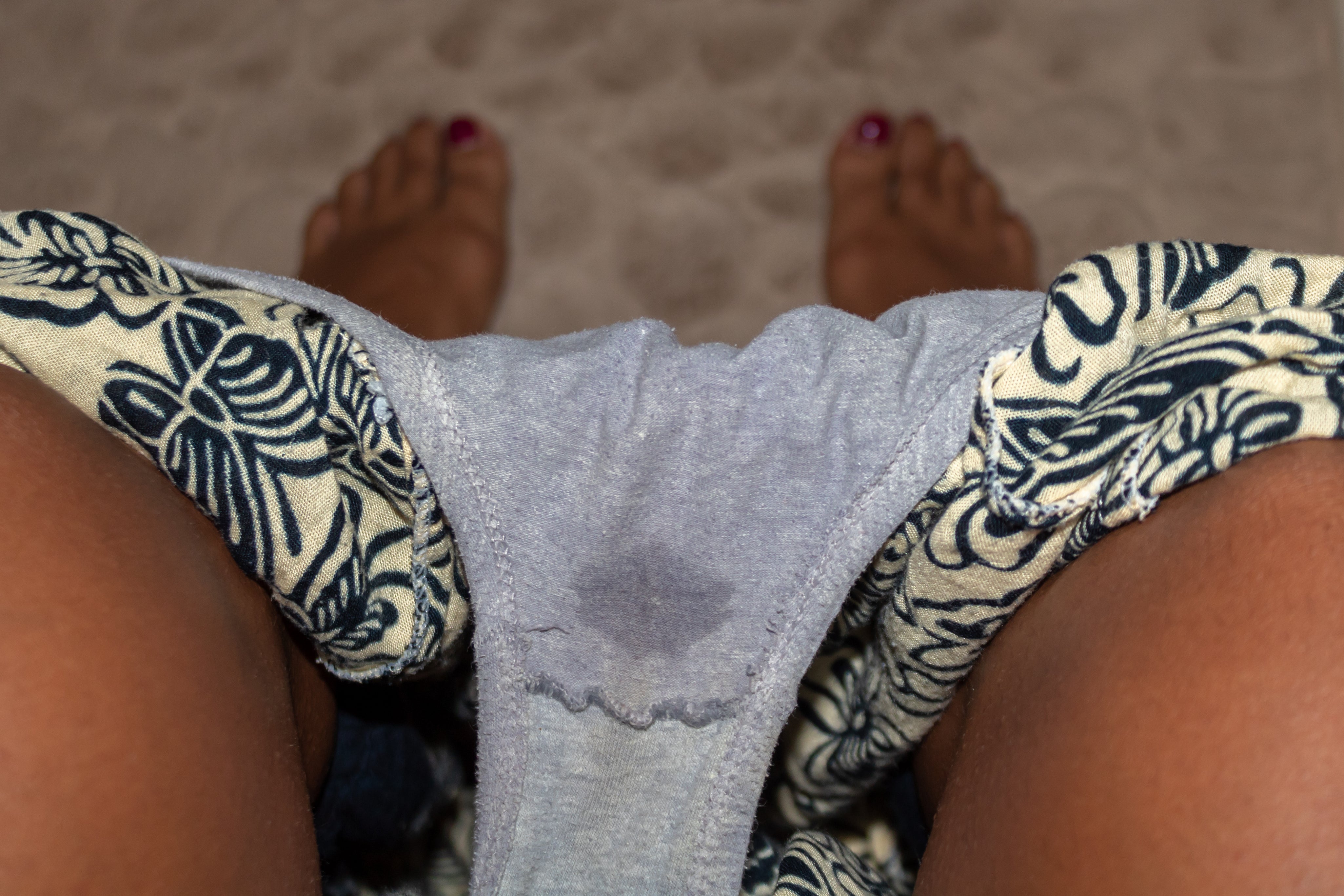5 Tips To Control Incontinence and Bladder Leaks

Urinary incontinence is a common condition that affects millions of people across the globe. There are different causes, such as pregnancy, childbirth, and menopause. It is also often associated with certain medical conditions, such as diabetes, urinary tract infections (UTI), obesity, vaginal infection or irritation. Regardless of the cause, there are easy ways to manage or even prevent urinary incontinence altogether. Read on to learn how to feel more in control of your bladder.
There are different types of urinary incontinence, including:
- Stress incontinence: In this type of urinary incontinence, the pelvic muscles that hold up the bladder are damaged. This happens when the pressure in your abdomen increases suddenly—for example, when you cough or laugh too hard.
- Urge incontinence: This is also known as overactive bladder. It occurs when you feel an urgent need to pee, but can't get to a toilet quickly enough (or at all).
- Overflow incontinence: In overflow incontinence, your bladder cannot empty its urine completely on its own; it keeps leaking urine even after you've finished urinating.
- Mixed incontinence: This can be either stress or urge urinary incontinence combined with overflow urinary incontinence.
Why do we experience urinary incontinence and bladder leaks?
There can be many reasons why we experience bladder leaks. Some of these are temporary and can be helped by lifestyle changes, while others are permanent and require medical attention.
Temporary urinary incontinence
If you have a temporary incontinence problem, there is a good chance that your symptoms will go away after a short time. The most common cause for temporary urinary incontinence is an increased volume of urine, which can be caused by certain drinks, foods, and medications, including the following:
- Alcohol
- Caffeine
- Carbonated drinks and sparkling water
- Artificial sweeteners
- Chocolate
- Foods high in spice, sugar or acid, especially citrus fruits
- Heart and blood pressure medications, sedatives, and muscle relaxants
- Large doses of vitamin C
Bladder leaks or the urge to pee often can also be caused by easily treatable medical conditions, such as:
- Urinary tract infection: Infections can irritate your bladder, causing you to have a strong urge to pee.
- Constipation: Your rectum is located near the bladder and shares many of the same nerves. Hard stool causes these nerves to be overactive and increase urinary frequency.
Persistent urinary incontinence
Urinary incontinence can also be a persistent condition caused by underlying conditions or changes, including:
- Pregnancy: Hormonal changes and the increased weight of the fetus can lead to stress incontinence.
- Childbirth: Vaginal delivery can weaken muscles needed for bladder control and damage bladder nerves and supportive tissue, leading to a dropped (prolapsed) pelvic floor.
- Changes with age: As you age, your pelvic floor muscles become less flexible, and the bladder naturally loses muscle tone, making it difficult to hold in urine (especially when laughing or coughing).
- Menopause: Estrogen levels drop during menopause, making it harder for the urethra (the tube that connects your kidneys to your bladder) to close properly after urinating. In turn, this allows leaks to happen more easily, especially during physical activity like exercising, coughing, or laughing.
- Enlarged prostate: Especially in older men, incontinence often stems from enlargement of the prostate gland.
- Prostate cancer: In men, stress incontinence or urge incontinence can be associated with untreated prostate cancer. But more often, incontinence is a side effect of treatments for prostate cancer.
- Obstruction: A tumour anywhere along your urinary tract can block the normal flow of urine, leading to overflow incontinence.
- Neurological disorders: Spinal cord injury, brain injury, or other neurological conditions like multiple sclerosis and Parkinson's disease can cause damage to the nerves responsible for voluntary control of urinating.
Risk factors
There are many factors that can lead to urinary incontinence. These include:
- Age: As you age, it becomes more difficult for your bladder muscles to hold urine in.
- Pregnancy, childbirth or menopause: The body undergoes changes during these experiences, which can affect the pelvic floor muscles and nerves within the pelvis.
- Obesity: Excessive weight can strain the bladder and increase pressure on the bladder during urination (urinary urgency). It also increases stress on pelvic organs, including muscles that support urination control.
- Smoking: Smokers are more likely than non-smokers to have urinary incontinence, because smoking damages blood vessels that supply nerves controlling urination control.
- Family history: If a close family member has urinary incontinence, especially urge incontinence, your risk of developing the condition is higher.
5 tips to help you feel more in control of your bladder
If you feel like your bladder is acting up, it's time to take control of the situation. Here are five things you can do to help:
Don't hold your pee: There is only so much urine your bladder can hold, and holding urine in for long periods of time can cause a backup that leads to urine leaks.
Avoid caffeine, alcohol, and spicy foods: They can irritate the bladder and cause it to contract or strain too much, which can result in the urge to urinate often, or incontinence.
Change your diet: Eating a healthy plant-based diet, and especially increasing fibre, can help prevent constipation, which is a cause of incontinence
Be active: Exercising regularly and incorporating pelvic floor exercises, such as Kegel exercises, will help tone and strengthen the muscles so they're able to form an effective barrier against leaks when needed most. Maintaining a healthy weight will also help prevent incontinence.
Try medication: if all else fails, there are several medical options available depending on how bad your symptoms are. Talk to your GP about the best options available for you.
The bedtime routine:
Many people find bladder leaks are most disruptive during nighttime or when trying to sleep. Starting a good bedtime routine can help prevent incontinence and bladder leaks during the night.
Drink enough water during the day: This helps prevent dehydration and can reduce bladder symptoms.
Don't drink fluids after dinner: Drinking fluids at night can cause your bladder to contract, which can lead to the urge to pee or leakage during the night. If you need to have liquids at night, do so slowly and allow your body to process it before going to sleep.
Try sleeping on your side, rather than your back or stomach: This helps keep urine from pooling to the lower part of the body, where gravity causes it to flow out more easily
Wear leakproof underwear
There are different products available for absorbing incontinence leaks, such as incontinence pads, disposable underwear, and reusable incontinence pants. Wearing underwear specially designed for urinary incontinence is a great way to have peace of mind when it comes to bladder leaks. If possible, buy several pairs and alternate them so that you have a fresh pair available when needed.
Our leakproof underwear is super absorbent, locking in up to 40ml of liquid within three seconds, leaving you feeling fresh and dry all day long. You can shop our range of incontinence underwear here.
Rounding it up
The tips we have outlined in this article will help you control your urinary incontinence. However, if you follow our advice and try out these tips, there is a good chance they will help improve your situation. And like always, be sure to speak with your GP for further information, as everyone is different.
With this knowledge at hand, we hope you are now better prepared to treat your incontinence issues.
So, what do you think? Have you tried these tips before? If so, did they work for you? Let us know in the comments below!
- Tags: Health



